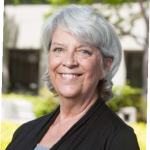What is the DREAM study?
The Discovering Cancer Risks from Environmental contaminants And Maternal/child health (DREAM) project will collect and analyze data to explore how chemicals put in our air, food, and water increase Cancer risk.
This new California-based pregnancy study will fill a critical knowledge gap by focusing on environmental chemical and pollutant contributors to Cancer risks during the biologically vulnerable time period of pregnancy.
The study will examine how pollutants may increase Cancer risk in two areas of the state in a racially and economically diverse group of pregnant women in the San Francisco Bay area and in California’s Central Valley, an area of primarily low-income Latinx disproportionately impacted by Pesticides and other toxic chemicals.
The DREAM study will measure chemical exposure biomarkers of several classes of prevalent environmental chemicals commonly found in consumer products that demonstrate endocrine disrupting or carcinogenic effects of concern. This will give us a better understanding of pregnancy-related exposures and their contribution to future Cancer risk.
Who will be involved?
DREAM will enroll and follow an economically, geographically, ethnically, and racially diverse participant pool of 10,000 pregnant women and their children in the San Francisco Bay Area and California’s Central Valley over a four-year period.






